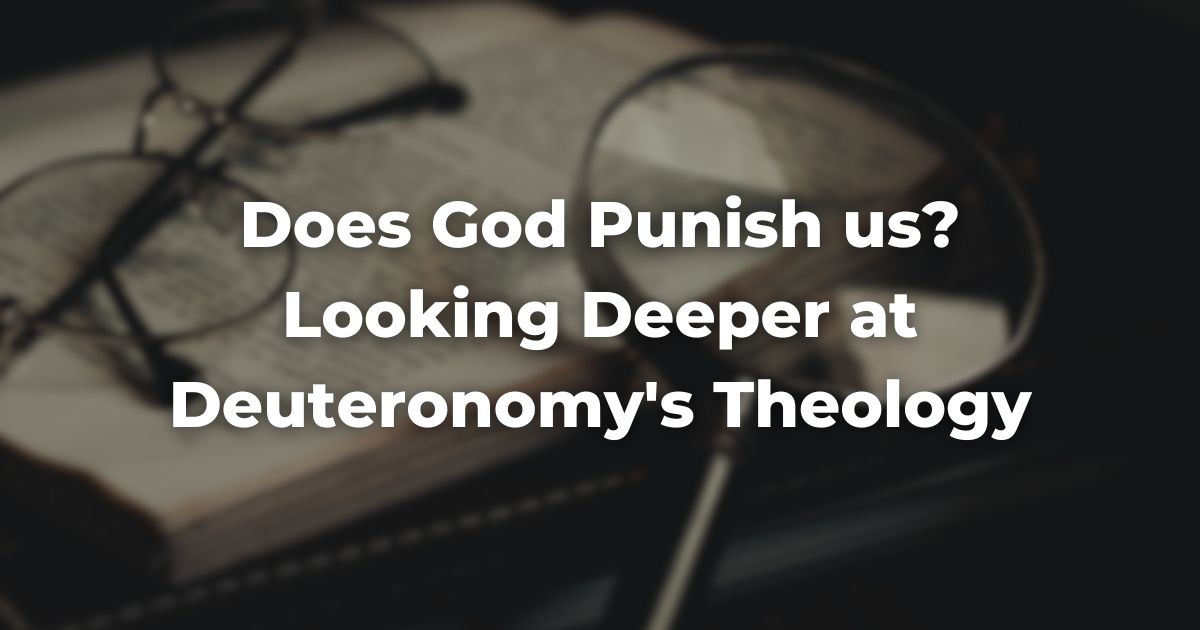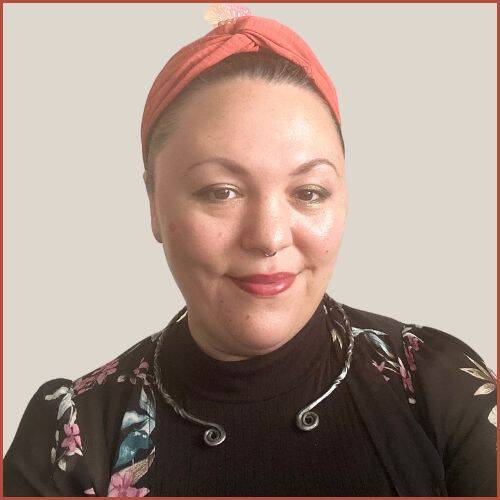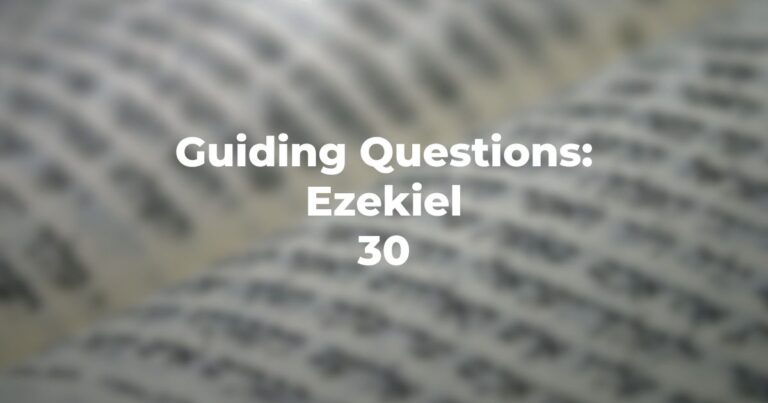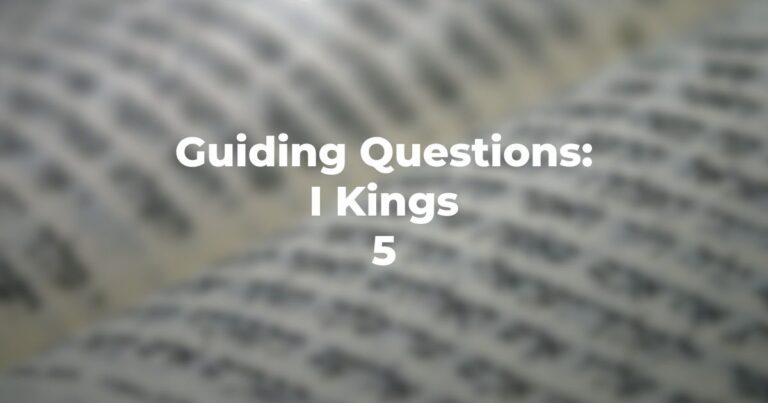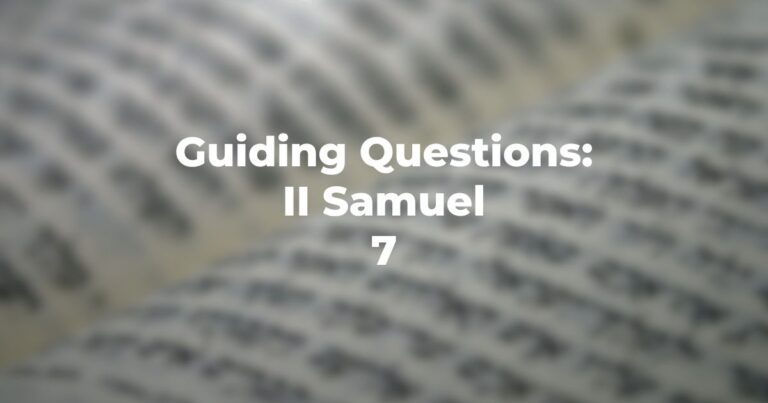Remember those bumper stickers that read, ‘God is love’? It’s a nice sentiment, to be sure and, like most humans, you probably want to believe it’s true. But when life gets hard, and if/when we suffer uncontrollably, it can start to feel less like God’s love and more like Divine punishment.
How could such a loving God allow us to suffer? Is suffering really a punishment for misdeeds? Does God want us to suffer? And if that were true — what kind of universe do we live in?
If you find yourself asking any of these questions, my friend, you’re in good company. The dissonance between life’s hardships and God’s love is an age-old struggle, dating back to Biblical times.
A few books of the Hebrew Bible deal directly with these themes, for example the books of Jonah and Job. There’s one book, however, that’s infamous for presenting what many call “reward and punishment theology.” That’s basically a fancy way of saying a group of our distant ancestors explained the hardships visited upon the Jewish people throughout our history through a particular theological lens. Reward and punishment theology sees catastrophe and struggle as Divine punishment for violating our Covenant with God.
But before you go jumping into a dark rabbit hole of God-is-a-tyrannical-old-man-in-the-sky, let’s explore why that is and why the Book of Deuteronomy isn’t just outdated thinking.
First, some context:
In the Book of Exodus (the second book of TorahRefers to the first five books of the Hebrew Bible, the Tanakh, also called the Five Books of Moses, Pentateuch or the Hebrew equivalent, Humash. This is also called the Written Torah. The term may also refer to teachings that expound on Jewish tradition. Read more), God brings the Israelites out of Egypt. Soon afterward, God says, “Hey peeps, you know, there was a reason I took you out of Egypt. It’s because you’re my People, and I’m your God. I made a covenant with your ancestors, and that includes you. And, P.S., because I’m your God, I’m giving you commandments. Just think of them as some rules to live by. OK? Good.”
Yes, that was a paraphrase. I’m pretty sure God didn’t say, “Peeps,” but bear with me.
A few books later, in Deuteronomy, we are told the commandments aren’t just part of the brit (the covenant) and rules to live by, we find out that blessings and curses accompany those rules. In other words, it’s implied that blessings are a reward for keeping the commandments, and curses are punishment for neglecting or forsaking them.
The list of blessings includes abundant harvests, healthy children, happy families, the seasonal rains coming at the proper time (which, if you live in a place like Israel, that’s a big deal). Other blessings include respect and a good reputation. Think of it like God promising to make Jews the Beyoncé of nations.
And the curses? Famine, oppression, subjugation, wars, a massive crisis in Jewish dating, general discord, and strife amongst families and friends. That’s only the beginning. The list goes on to say really bizarre, unsettling things like, “In the morning, you’ll say ‘if only it were evening!’And in the evening, you’ll say, ‘if only it were morning!” (Not a paraphrase, by the way, that’s Deuteronomy 28:67). Translation: generalized anxiety.
Bottom line: For many of us today, this kind of stuff is not only hard to swallow, it can feel backward and even repulsive.
Should we infer God is maniacally keeping score? Poised to punish us for the slightest slip-up? Or give us a cookie for being good rule followers?
We’re grown adults. God shouldn’t need to micromanage us with fear. Yet, there is a resolution to this dilemma, and it comes from a surprising place.
In Deuteronomy 28:63, God promises to take as much delight in implementing the curses as showering us with abundance and blessing. This may sound harsh, but if we remember that God gave us freewill and choice we can look at the “curses” or “blessings” simply as the consequences of our choices.
The Medieval commentator Rashi teaches us the Torah is limited by human language. The Torah is giving us an insight into how the universe works but, because concepts like God and the Universe are too complex for true description, the language we use is sometimes clunky and inaccurate.
When we make a choice, God backs us up, all the way. God arranges the universe to accommodate our choices, because life is an exercise in partnership between humans and the Divine.
Now, that’s not to say that God lets us go it alone. It’s simply that we have more power within ourselves than we believe.
Yes, the lessons life gives us can feel unnecessarily harsh when we’re in the middle of them. But sometimes we learn the hard way, and it’s not because God wants us to suffer or be miserable. It’s because spiritual growth is attained only by learning to find our way through challenges.
God knows our nature as humans. We can be incredibly stubborn.
Remember when you were a teenager and your parents told you what to do (better yet, what not to do)? Did you listen to them? Or did you roll your eyes and do whatever you wanted anyway? You can know something intellectually, but doing and experiencing it (and messing up) provides a deeper level of understanding.
God knows that, and – believe it or not – the fact that God makes room for our mistakes, letting us come to wisdom in our own time is a sign that God loves and trusts us. Deeply and unendingly.
This is one of the biggest secrets the Book of Deuteronomy has to teach us: when life gets tough, we’re not out there all alone. God is inviting us to look deeper and push ourselves to grow. When we do this we strengthen our connection to God.
Author
-

Malka Michél was born and raised in Honolulu, Hawaii. She is the proud daughter of an Ashkenazi father and Sephardic mother with Converso roots. She was a fellow in the first cohort of the Exploring Judaism's Writer's Fellowship. Malka regards her upbringing on the western extreme of the American Jewish Diaspora as having an enormous influence on her outlook as a Jew and the deep spirituality she cultivated as a child. As an intuitive and highly creative and soul, it was natural for Malka to pursue degrees in Western Classical music and performance. Seeking to reclaim a critical part of her Jewish identity, Malka taught herself Hebrew and then completed three years of cantorial school at Hebrew Union College in Jerusalem and New York. During that time, Malka fell in love with Hazzanut but longed to know more about the rich, beautiful and often challenging world of Jewish text. So, in 2020 Malka began her journey at the Ziegler School for Rabbinic Studies in Los Angeles. Malka sees her circuitous journey to the rabbinate as essential in shaping her as a person and a rabbi.
View all posts

